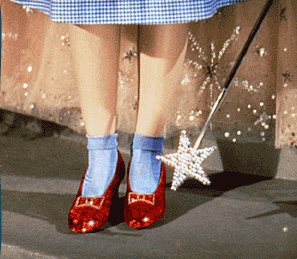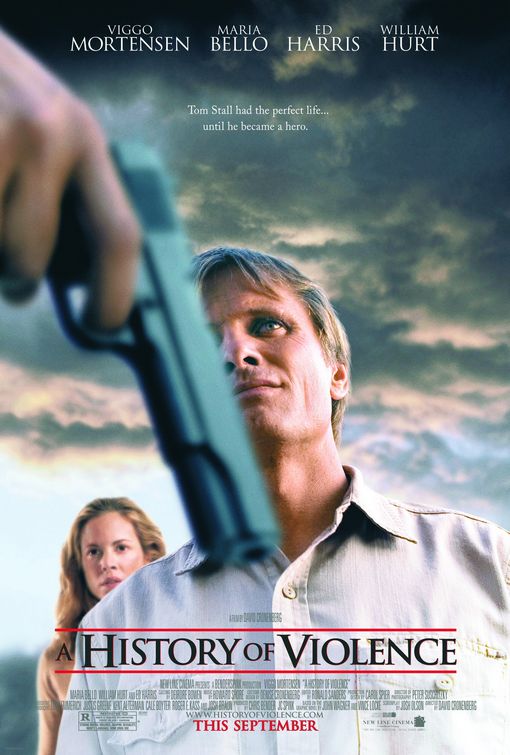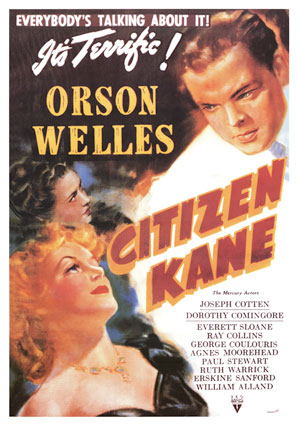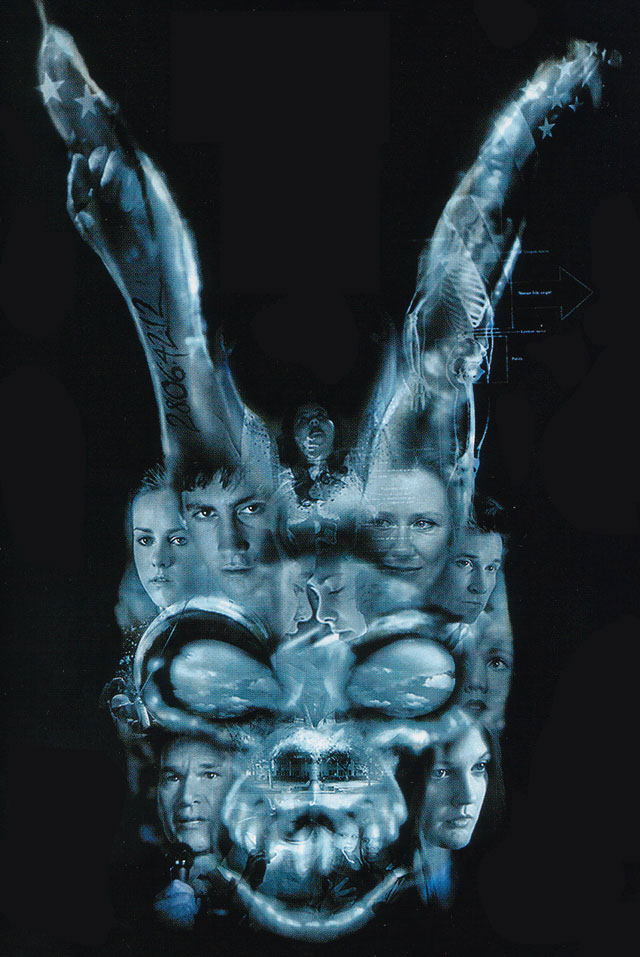* CAUTION: Spoilers Administered with Intense Prejudice
 What constitutes a good movie ending? On one hand, it’s enough that Dorothy makes it home unscathed, with a deeper appreciation for home intact. But had she found herself in a Wes Craven flick, a good ending would have required significantly more entrails along the yellow brick road. So the answer is dependent upon the type of film and its audience. Nuking the White House worked for the aliens in Independence Day, but being E.T. requires considerably more savvy.
What constitutes a good movie ending? On one hand, it’s enough that Dorothy makes it home unscathed, with a deeper appreciation for home intact. But had she found herself in a Wes Craven flick, a good ending would have required significantly more entrails along the yellow brick road. So the answer is dependent upon the type of film and its audience. Nuking the White House worked for the aliens in Independence Day, but being E.T. requires considerably more savvy.
In the simplest sense, a good ending requires sufficient resolution to the plot; it will not leave loose ends dangling. Despite this truism, John Carpenter‘s horror classic The Thing closes shop before we know who dunnit — or, more accurately, who is it. As their arctic base burns to the ground leaving a dozen dead men (and an assortment of grizzly extraterrestrial oddities), the final two survivors sit freezing in the snow, unsure of each other’s real identity, in a frigid standoff, while the credits roll. So who was the monster? Was either? Maybe both. Some would call this a bad ending. I think it encapsulated the paranoia of the entire film. So, I guess, ambiguous endings need not be bad.
But who wouldn’t rather have clarity and concision; we want to know who wins, who loses, and why. In the “losing” category, that’s what I loved about Friday Night Lights. The Permian Panthers, small-town high school football team makes it all the way to the state championship, only to fall inches short of the  goal line in the final seconds. How disappointing. How wonderfully un-Hollywood! Here I was expecting a Roy Hobb‘s homer, a Hoosiers slam dunk, or a Rocky knockout. It may have been unconventional, but it wasn’t bad.
goal line in the final seconds. How disappointing. How wonderfully un-Hollywood! Here I was expecting a Roy Hobb‘s homer, a Hoosiers slam dunk, or a Rocky knockout. It may have been unconventional, but it wasn’t bad.
However, knowing who wins isn’t an automatic good ending. In David Cronenberg‘s A History of Violence, the leading man manages to out all the bad guys. But, in the end, wasn’t he one himself? After the bloodbath, he shuffles back to his idyllic home and once-perfect family, stained forever. There’s no doubt who the winner is. . . but will anyone say grace with him again?
 Still, there’s more to a good ending than just tying up all the plot points. Nothing tops a single scene — an ah-ha moment — where the truth is told, where narrative streams converge. Is there a single movie moment more revelatory than the final scene in Citizen Kane? The burning of Rosebud — the wooden sled snatched from the young Kane on his ascent into wealth — perfectly focalized the millionaire’s egomaniacal self-destruction, and the pain that put it there. This ending still ranks as one of the best endings of all time.
Still, there’s more to a good ending than just tying up all the plot points. Nothing tops a single scene — an ah-ha moment — where the truth is told, where narrative streams converge. Is there a single movie moment more revelatory than the final scene in Citizen Kane? The burning of Rosebud — the wooden sled snatched from the young Kane on his ascent into wealth — perfectly focalized the millionaire’s egomaniacal self-destruction, and the pain that put it there. This ending still ranks as one of the best endings of all time.
Of course, nowadays good endings are often measured in terms of trickery, twists and surprise. Maybe the best of the bunch is still The Sixth Sense. In the theater where we saw it, there was a collective gasp from the audience when we learned Bruce Willis was one of the dead  people Mssr. Osment saw. My first real memory of a surprise ending was Alfred Hitchcock‘s Psycho. As if Anthony Perkins wasn’t creepy enough as twitchy Norman Bates, we had to climb into “mother’s” head. I was about 12 when I saw Rosemary’s Baby and watched it alone. Not a good idea. I’m not sure what rattled me more, discovering that Mia Farrow had been carrying the spawn of Satan or that she embraced the child. Since then, surprise endings have become a staple of the horror genre.
people Mssr. Osment saw. My first real memory of a surprise ending was Alfred Hitchcock‘s Psycho. As if Anthony Perkins wasn’t creepy enough as twitchy Norman Bates, we had to climb into “mother’s” head. I was about 12 when I saw Rosemary’s Baby and watched it alone. Not a good idea. I’m not sure what rattled me more, discovering that Mia Farrow had been carrying the spawn of Satan or that she embraced the child. Since then, surprise endings have become a staple of the horror genre.
While Jacob’s Ladder probably isn’t pure horror, the demons he battles along the way are. Discovering that he was dying the entire movie, trying to find his way “home,” was a terrific device. That he was led to heaven by Mcauley Culkin is even more disturbing. David Fincher’s Se7en employed a reverse punch as  Brad Pitt‘s character descends into the final deadly sin, Anger. “What’s in the box?” is still one of the great movie lines. But one of my favorites of the horror bunch is Donnie Darko. Forget that “Donnie” went Brokeback on us. Not only did Richard Kelly work quantum physics into this tale of a troubled teen, he employed it as a redemptive mechanism with heartbreaking effect. Couple that with a haunting remix of Tears for Fears‘ Mad World made this a great ending for me.
Brad Pitt‘s character descends into the final deadly sin, Anger. “What’s in the box?” is still one of the great movie lines. But one of my favorites of the horror bunch is Donnie Darko. Forget that “Donnie” went Brokeback on us. Not only did Richard Kelly work quantum physics into this tale of a troubled teen, he employed it as a redemptive mechanism with heartbreaking effect. Couple that with a haunting remix of Tears for Fears‘ Mad World made this a great ending for me.
Something a little less dark, but equally poignant, was the ending of David Lynch’s Elephant Man. As the hideously deformed John Merrick surveys his tiny loft, the gifts he’s received, the models he’s built, and the locket with his mother’s picture, we see a man thankful for life, not bitter at its injustice. So when he lays down for the last time and the screen goes black, we feel we are losing a man, not a monster. And speaking of men and the existential struggle for meaning and self-worth, the final scene in About Schmidt moved me to no end. Lisa says my feminine side is  disproportionate to most males. (Still not sure if that’s a compliment. And it still wasn’t enough to make me like The Notebook!) Anyway, it was nowhere more in play than at the end of this film where Jack Nicholson‘s Schmidt, a man who is the epitome of mediocrity, reaches retirement widowed, only to discover he’s been cheated upon and his daughter is marrying a mullet-topped loser. Surely his life is a waste. Until, in the final scene of the movie, he discovers that his gift to an orphanage has changed one child’s life. He reads the crayon card from Ndugu as tears stream down his face. Call me a softy, but this ranks up there with some of my favorite movie endings.
disproportionate to most males. (Still not sure if that’s a compliment. And it still wasn’t enough to make me like The Notebook!) Anyway, it was nowhere more in play than at the end of this film where Jack Nicholson‘s Schmidt, a man who is the epitome of mediocrity, reaches retirement widowed, only to discover he’s been cheated upon and his daughter is marrying a mullet-topped loser. Surely his life is a waste. Until, in the final scene of the movie, he discovers that his gift to an orphanage has changed one child’s life. He reads the crayon card from Ndugu as tears stream down his face. Call me a softy, but this ranks up there with some of my favorite movie endings.
So there it is, from foul to fab. I’m sure there’s many I missed, so feel free to add yours to the mix. Grace and peace! And here’s to many more good endings.















Comments on this entry are closed.
Mike,
Hope you’re not sick of me dumping comments here yet. Whenever you’re talking movies, I’m there (ask Nicole).
In any case, I’ll agree with Linda from yesterday–I love the ending of The Usual Suspects. Great twist. And I’ll agree on The Sixth Sense as well (although I actually figured that one out–by the time I saw it, I’d heard so much about the twist ending that I was single-mindedly watching the film for clues).
How about Field of Dreams? Kevin Costner is reconciled with dad, and plays catch while the camera cranes up to show the massive line of cars coming to the field…perfect. Not a dry eye in the house. Even for us manly men.
Casablanca has a terrific ending as well–mature and unexpected.
And there’s my favorite film of all time: Raiders of the Lost Ark. The final shot of the ark being boxed up and hidden in the miles of crates in an anonymous warehouse is a classic.
The incredible ending of an old film, Michelangelo Antonioni’s Blow Up, is absolutely perfect.
And, hey, I thought the ending for 3:10 to Yuma was great. (Especially whistling for his horse. Loved it!)
Sixth Sense was a good ending, no doubt.
And one of my all time favorite “endings”: POTC, Curse of the Black Pearl.
It is true that good endings aren’t necessarily happy endings. I judge a movie on the conversation it elicits on the way home (or on the way to the kitchen) Wanting to immediately watch it again to find the clues is also satisfying. (as in the 6th Sense or The Prestige)
I liked the ending of The Departed. Was Mark Walberg a good guy seeking vengeance for his friend or another bad guy tying up loose ends?
Sideways frustrated me. The characters were so well written and yet very unlikable. It frustrated me that I cared so much what happened to these people.
My favorite ending would have to be Big Fish, where the son is finally able to connect with his father and finish his dad’s tall tale. That is the one that gets me blubbering every time.
Big Fish did have a good ending, and I can’t watch it again because I cried too hard.
Mark, I’m ashamed to say I’ve never watched Casablanca. Think I should rush on over to Netflix and add it to my queue? Great call about Field of Dreams. Have you been following the development of the new Indiana Jones film? The script had been on and off the table for so long, it’ll be interesting to see the storyline they go with.
Nicole, I’ve never seen Blow Up but have heard lotsa good things about it. From what I understand, the film became a template for many other films. How’s that sound for a double bill: Casablanca and Blow Up? Think Lisa would watch them with me?
Mark D., it’s a great point about judging movies by the conversation they elicit. It brings to mind seeing The Apostle with my mother. As you may recall, he was a charismatic but conflicted minister — a walking contradiction. After being sent to jail for battery (or something), and as the credits roll, we see him preaching to the inmates. My Mom and I went back and forth in discussion on the way home as to the nature of the apostle, and Christians in general.
Big Fish is a great reference, but I really liked the ending of Sideways. Miles was finally stepping up, conquering his confliction and pessimism, and attempting to get his life in order. It was apropos that the movie ends with him standing on the porch, and knocking on the door, of a potential relationship.
Blow Up is a time long past in my life, Mike. It’s a powerful film, though. Existential, literary, if you will. Symbolic and an amazing ending.